May 11, 2018 •
Colorado General Assembly Adjourns Sine Die
The 2018 session of the Colorado General Assembly adjourned sine die on Wednesday, May 9. During the four-month session, lawmaker achievements included advancing bipartisan anti-gerrymandering legislation, protecting the state Civil Rights Division, and securing investments in transportation, education, and healthcare. […]
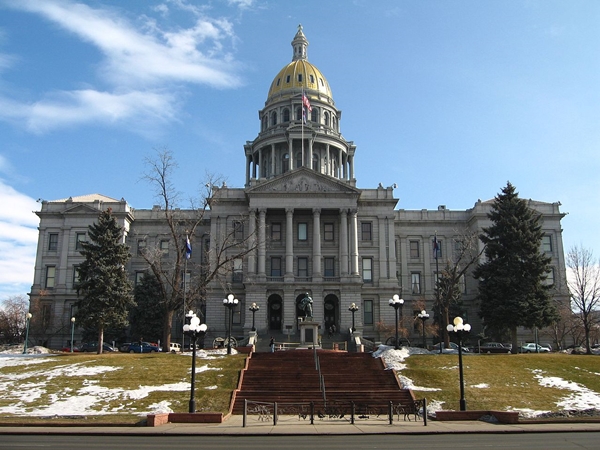 The 2018 session of the Colorado General Assembly adjourned sine die on Wednesday, May 9.
The 2018 session of the Colorado General Assembly adjourned sine die on Wednesday, May 9.
During the four-month session, lawmaker achievements included advancing bipartisan anti-gerrymandering legislation, protecting the state Civil Rights Division, and securing investments in transportation, education, and healthcare.
The next legislative session will convene January 4, 2019.
April 12, 2018 •
Upcoming Rulemaking Hearing on Changes to Colorado Lobbyist Rules
The Colorado Secretary of State will host a rulemaking hearing on April 16 regarding proposed changes to lobbyist regulations. A copy of the revised draft is available online at the Secretary of State’s website. Proposed changes include, but are not […]
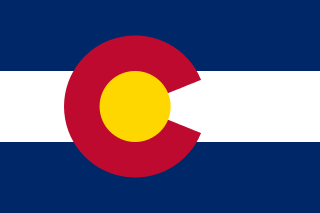 The Colorado Secretary of State will host a rulemaking hearing on April 16 regarding proposed changes to lobbyist regulations. A copy of the revised draft is available online at the Secretary of State’s website.
The Colorado Secretary of State will host a rulemaking hearing on April 16 regarding proposed changes to lobbyist regulations. A copy of the revised draft is available online at the Secretary of State’s website.
Proposed changes include, but are not limited to, amending and adding lobbying definitions, clarification of professional lobbyist and lobbyist firm registration and disclosure requirements, and recodification to ensure uniform and proper administration and implementation of state law.
Written comments regarding the proposed draft may be submitted any time before and during the hearing.
March 1, 2018 •
Colorado Lawmaker Facing Expulsion Vote
The Colorado General Assembly will vote Friday on whether to expel a lawmaker; such a vote will be the first in more than a century. Democratic state Rep. Steve Lebsock is facing multiple accusations of sexual harassment and misconduct. House […]
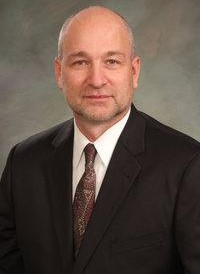 The Colorado General Assembly will vote Friday on whether to expel a lawmaker; such a vote will be the first in more than a century.
The Colorado General Assembly will vote Friday on whether to expel a lawmaker; such a vote will be the first in more than a century.
Democratic state Rep. Steve Lebsock is facing multiple accusations of sexual harassment and misconduct. House Majority Leader KC Becker determined the allegations both serious and egregious in nature, demonstrating a pattern of inappropriate behavior.
Each chamber is permitted, per the state Constitution, to remove any member from office for bad behavior. Removal will require support from at least 44 of the 65 legislators in the House.
November 8, 2017 •
Denver Approves Bond Package
Voters in Denver approved a $937 million bond package to fund roads, parks, libraries, and cultural facilities. The bond package, made up of seven different ballot questions, is the city’s largest ever and the first it has seen in a […]
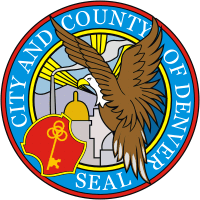 Voters in Denver approved a $937 million bond package to fund roads, parks, libraries, and cultural facilities.
Voters in Denver approved a $937 million bond package to fund roads, parks, libraries, and cultural facilities.
The bond package, made up of seven different ballot questions, is the city’s largest ever and the first it has seen in a decade.
Support on all seven ballot questions was strong, the smallest margin of victory hovering above 60 percent.
There was no organized opposition to the package which covers about 460 repair and improvement projects throughout the city.
November 8, 2017 •
Denver Approves Bond Package
Voters in Denver approved a $937 million bond package to fund roads, parks, libraries, and cultural facilities. The bond package, made up of seven different ballot questions, is the city’s largest ever and the first it has seen in a […]
 Voters in Denver approved a $937 million bond package to fund roads, parks, libraries, and cultural facilities.
Voters in Denver approved a $937 million bond package to fund roads, parks, libraries, and cultural facilities.
The bond package, made up of seven different ballot questions, is the city’s largest ever and the first it has seen in a decade.
Support on all seven ballot questions was strong, the smallest margin of victory hovering above 60 percent.
There was no organized opposition to the package which covers about 460 repair and improvement projects throughout the city.
September 15, 2017 •
Colorado Governor Calls for Special Legislative Session in October
Gov. John Hickenlooper has called a special legislative session on Oct. 2 to fix a budgeting issue that resulted from consolidating two marijuana taxes. A bill-drafting error inadvertently left out the Regional Transportation District, the Denver Zoo, and other Denver-based […]
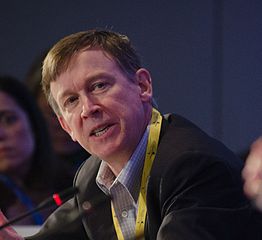 Gov. John Hickenlooper has called a special legislative session on Oct. 2 to fix a budgeting issue that resulted from consolidating two marijuana taxes.
Gov. John Hickenlooper has called a special legislative session on Oct. 2 to fix a budgeting issue that resulted from consolidating two marijuana taxes.
A bill-drafting error inadvertently left out the Regional Transportation District, the Denver Zoo, and other Denver-based institutions from receiving hundreds of thousands of dollars in marijuana tax revenue.
Republican leaders reacted angrily, claiming they had not been consulted about a game plan and questioning why this could not wait till the regular session convenes in January.
Per the state constitution, lawmakers are required to convene when called, but they are not required to take action.
September 14, 2017 •
Denver City Council Amends Campaign Finance Ordinance
Denver City Council unanimously approved a proposal to close a loophole allowing campaign spending to go unreported if not coordinated directly with a candidate’s campaign. Individuals, companies, and other organizations making $1,000 in independent expenditures, including electioneering communications, will be […]
 Denver City Council unanimously approved a proposal to close a loophole allowing campaign spending to go unreported if not coordinated directly with a candidate’s campaign.
Denver City Council unanimously approved a proposal to close a loophole allowing campaign spending to go unreported if not coordinated directly with a candidate’s campaign.
Individuals, companies, and other organizations making $1,000 in independent expenditures, including electioneering communications, will be required to disclose all expenses and donors exceeding $25 within two days after reaching the $1,000 expenditure threshold.
The approved legislation also amends various campaign finance definitions, changes reporting periods for political committees, and imposes fines for late reports.
All bill provisions are effective Friday, September 15, unless otherwise provided in the legislative text.
September 6, 2017 •
Denver City Council to Consider Amending Campaign Finance Law
Denver City Council is attempting to close a loophole allowing campaign spending to go unreported if not coordinated directly with a candidate’s campaign. The measure would adopt the state definitions of independent expenditure and electioneering communication. It would also require […]
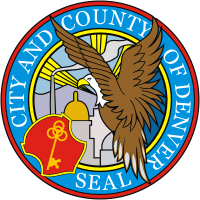 Denver City Council is attempting to close a loophole allowing campaign spending to go unreported if not coordinated directly with a candidate’s campaign.
Denver City Council is attempting to close a loophole allowing campaign spending to go unreported if not coordinated directly with a candidate’s campaign.
The measure would adopt the state definitions of independent expenditure and electioneering communication. It would also require individuals or entities making independent expenditures to file a report within two days of spending more than $1,000, itemize all contributions received exceeding $25, and clearly identify the source of funding for any paid advertising.
If the bill passes, other changes to city campaign finance laws would include differentiation between issue committees and other political committees, as well as a requirement for quarterly reports in the calendar year before an election and additional reporting in the weeks leading up to an election.
Council has scheduled a final vote for Sept. 11.
May 11, 2017 •
Colorado Legislature Adjourns First Regular Session
The first regular session of the 71st Colorado General Assembly adjourned Wednesday, May 10. Prior to adjournment, lawmakers passed an omnibus spending bill to save Colorado hospitals millions of dollars and reduce Medicaid spending while increasing funding for highway projects […]
 The first regular session of the 71st Colorado General Assembly adjourned Wednesday, May 10.
The first regular session of the 71st Colorado General Assembly adjourned Wednesday, May 10.
Prior to adjournment, lawmakers passed an omnibus spending bill to save Colorado hospitals millions of dollars and reduce Medicaid spending while increasing funding for highway projects and offering a personal property tax credit to businesses. Due to partisan disagreement, however, legislators failed to reauthorize the Colorado Energy Office, effectively dismantling the agency July 1.
The second regular session will convene on January 10, 2018.
April 7, 2017 •
Governor Signs Bill Modernizing Colorado Procurement Code
Gov. Hickenlooper recently signed House Bill 17-1051, modernizing the Colorado Procurement Code. Among other changes, the bill exempts grants from the state bidding requirements and makes the Procurement Code of Ethics and Guidelines applicable to state procurement officials, end users, […]
 Gov. Hickenlooper recently signed House Bill 17-1051, modernizing the Colorado Procurement Code.
Gov. Hickenlooper recently signed House Bill 17-1051, modernizing the Colorado Procurement Code.
Among other changes, the bill exempts grants from the state bidding requirements and makes the Procurement Code of Ethics and Guidelines applicable to state procurement officials, end users, vendors, contractors, and interested third parties.
If the Legislature adjourns sine die on May 10, 2017, the bill will be effective August 9.
Photo of Gov. Hickenlooper By U.S. Department of Agriculture via Wikimedia Commons
March 7, 2017 •
Denver City Council Amends Gift Laws
Denver City Council approved legislation on Monday amending the city gift rules. Council Bill No. 16-1202 establishes a $300 annual limit on meals, tickets, or free or reduced price admissions from persons or donors with a city interest. Officers, officials, […]
 Denver City Council approved legislation on Monday amending the city gift rules. Council Bill No. 16-1202 establishes a $300 annual limit on meals, tickets, or free or reduced price admissions from persons or donors with a city interest.
Denver City Council approved legislation on Monday amending the city gift rules. Council Bill No. 16-1202 establishes a $300 annual limit on meals, tickets, or free or reduced price admissions from persons or donors with a city interest.
Officers, officials, and employees may accept meals, tickets, or free admission to events regardless of the annual cap if the meals are provided to all attendees at a public meeting and consumed while the meeting is in progress.
The $300 limit also excludes meals provided to all members of any governmental, civic, or non-profit board if the officer, official, or employee is a member and if the meals are consumed in conjunction with any meeting of the board.
Finally, the limit excludes tickets or free admission offered by a charitable or other non-profit entity hosting the event and not by any third party.
The bill will be forwarded today to the mayor for approval and to the city clerk and recorder for attestation; it is effective tomorrow, March 8.
January 20, 2017 •
Denver City Council Delays Ethics Changes
The Denver City Council was expected to accept ethics changes on January 17, but postponed the vote until February 21. New gift rules proposed by Councilman Kevin Flynn will impose a $300 limit per year on what officials and employees […]
 The Denver City Council was expected to accept ethics changes on January 17, but postponed the vote until February 21.
The Denver City Council was expected to accept ethics changes on January 17, but postponed the vote until February 21.
New gift rules proposed by Councilman Kevin Flynn will impose a $300 limit per year on what officials and employees may accept. Councilmembers voiced concerns about what gifts qualify.
To eliminate the confusion, officials are going to address their questions face-to-face before the official vote a month from now.
January 16, 2017 •
Independent Ethics Commission Puts Municipalities on Notice In Battle Over Gift Rules
The Colorado Independent Ethics Commission recently issued a position statement notifying home-rule municipalities of its intent to consider ethics complaints against local officials and employees if their local ethics codes are less restrictive than state law. Constitutional Amendment 41, passed […]
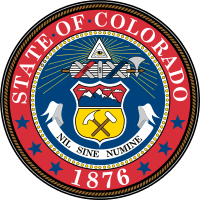 The Colorado Independent Ethics Commission recently issued a position statement notifying home-rule municipalities of its intent to consider ethics complaints against local officials and employees if their local ethics codes are less restrictive than state law.
The Colorado Independent Ethics Commission recently issued a position statement notifying home-rule municipalities of its intent to consider ethics complaints against local officials and employees if their local ethics codes are less restrictive than state law.
Constitutional Amendment 41, passed by voters in 2006, sets a $59 (adjusted for inflation) gift limit for public officers, legislators, local government officials and government employees as well as for their spouses and dependent children. More than 70 municipalities, however, are designated as home-rule and, therefore, can adopt local ethics rules in lieu of state law. In addition to the opt-out provision, there is also a provision allowing other local governments to adopt stricter ethics rules.
According to the commission, the constitutional provision permitting local governments to enact more stringent rules still applies to those home-rule municipalities choosing to opt out of the state law provisions.
Critics of the position statement, including Colorado Ethics Watch and Colorado Common Cause, believe the commission is misinterpreting Amendment 41; local governments with home-rule powers should be permitted to opt out if they adopt local laws covering the same ground. They dispute any interpretation wherein Amendment 41 simultaneously applies to and does not apply to home-rule municipalities with adopted ethics rules.
City attorneys throughout the state are currently taking no action while the Colorado Municipal League looks at potential legal options.
December 22, 2016 •
Denver City Council to Consider Changes to Ethics Rules
Denver City Council is one step closer to adopting amendments to the city ethics code. Proposed ethics reform would amend lobbyist and gift disclosure rules and increase transparency. Council recently discussed a new dollar limit on event tickets from any […]
 Denver City Council is one step closer to adopting amendments to the city ethics code. Proposed ethics reform would amend lobbyist and gift disclosure rules and increase transparency.
Denver City Council is one step closer to adopting amendments to the city ethics code. Proposed ethics reform would amend lobbyist and gift disclosure rules and increase transparency.
Council recently discussed a new dollar limit on event tickets from any donor with a city interest, and proposed making all public official gift disclosures and lobbying reports available online. Such proposals are set for a final vote on January 3.
In a separate proposal, Councilman Kevin Flynn is also seeking to amend ethics laws and set a $300 annual limit on tickets or event admissions from donors with city interests. His proposal could be considered by council late next month.
State and Federal Communications, Inc. provides research and consulting services for government relations professionals on lobbying laws, procurement lobbying laws, political contribution laws in the United States and Canada. Learn more by visiting stateandfed.com.


